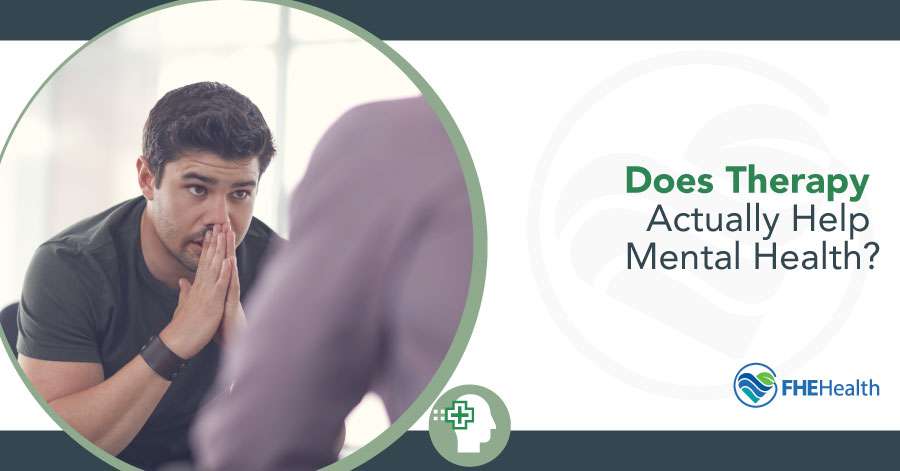Opinions expressed by Entrepreneur contributors are their own.
Stress happens. In fact, stress is perfectly normal and, in some cases, even be beneficial.
 Ben Pipe Photography | Getty Images
Ben Pipe Photography | Getty Images
There are two types of stress. “Acute stress” is a leftover survival technique that protects us from danger. It’s simply your reaction to an immediate threat and is commonly known as the “fight or flight” response.
Chronic stress, however, is a different beast. This is the stress that we face daily, such as an overbearing boss or money-pit of a house. This can drastically affect both your mind and body.
Common symptoms of chronic stress include irritability, anxiety, depression, headaches and insomnia. It can undermine your digestive, muscular and immune systems, making you more vulnerable to everything from the common cold to cancer. Chronic stress can also do some serious long-lasting damage to your brain. Here are some of the worst effects of chronic stress on the brain:
Related: The Impact Of Chronic Work Stress On Your Employees
Creates free radicals that kill brain cells: Stress produces an excess of a steroid hormone cortisol. This can lead to the creation of free radicals that can punch holes in the brain cell walls. You can make you more susceptible to unhealthy habits and addictive behaviors.
Makes you forgetful and emotional: Studies have found that electrical signals in the brain that are associated with factual memories weaken. However, areas in the brain associated with emotions strengthen.
Creates a vicious cycle of fear and anxiety: Stress builds up a part of the brain known as the amygdala. This is your fear center. So, stress can result in a cycle of fear and stress.
Halts the production of new brain cells: Cortisol stops the production of brain-derived neurotrophic factor (BDNF). This is a protein that keeps brain cells healthy and forms new ones.
Contributes to depression by depleting critical brain chemicals: Chronic stress can also reduce levels of serotonin and dopamine. These are simply happy chemicals in your known called neurotransmitters. Without them people become depressed and more likely to develop addictions.
Puts you at greater risk for mental illnesses of all kinds: Some research suggests that stress predisposes people to mental illness. This can include panic disorders, depression, PTSD, schizophrenia, bipolar disorder, drug addiction and alcoholism.
Makes you stupid: Stress also makes your brain freeze at the worst time, such as during a job interview.
Shrinks your brain: Cortisol is also responsible for stopping the production of new neurons in hippocampus. This is the part of the brain that stores memories. This can affect decision making, working memory and control of impulsive behavior.
Related: Stress Literally Shrinks Your Brain. Here Are 7 Ways To Reverse This Effect.
Let’s toxins into your brain: The blood-brain barrier protects your brain from harmful substances. Stress makes this barrier more leaky, leaving you vulnerable to pathogens, heavy metals, chemicals and other toxins that an unstressed brain can shield against.
Increases your risk of dementia and Alzheimer’s: While there is “magic bullet” to prevent Alzheimer’s, studies are showing that stress can play a role. Chronic stress elevates cortisol, which contributes to dementia in the elderly and accelerates its progression.
Causes brain cell suicide: Stress can also cause cells to age prematurely. This could put you in a greater risk of Alzheimer’s, heart disease, diabetes, and cancer.
Chronic stress contributes to brain inflammation and depression.
Did you know that your brain has it’s own immune system? It’s a group of cells called microglia that protect the brain and spinal cord from infections and toxins. Stress can activate the microglia, which leads to brain inflammation.
Related: Managing Your Mental Health as an Entrepreneur
Chronic stress shouldn’t be taken lightly. It has drastic effects on you both physically and mentally. And, because of this, it’s no surprise that stress would make you want to shut down.
Instead of shutting down, here are four proven ways to stop stress immediately.
1. Remember: This too shall pass.
“Laundry is piling up, the baby has a fever, and your boss wanted that report yesterday. Sound familiar?” writes Jamie Long Psy.D. “No one managing his or her own life is devoid of stress. Too much stress can lead to excessive worry, nervousness, dread, upset stomach, or difficulty breathing.”
The first step in overcoming these negative feelings is to recognize that this is a normal emotional state. It’s most commonly identified as anxiety.”
“Although it’s uncomfortable, the negative feelings WILL PASS,” adds Long. “Fighting the anxiety can make it stronger. Paradoxically, accepting that you are feeling anxious helps activate the body’s natural relaxation response.”
2. Increase oxygen flow.
Dr. Bruce Rabin, medical director of the Healthy Lifestyle Program at the University of Pittsburgh Medical Center, says that an increase of oxygen flow to the brain can reduce stress. This calms down the regions that get activated by stress. This causes those stress-hormone levels to rise.
The best way to increase oxygen glow is by exercising. But, what if you can’t leave work or hit the gym? Kathleen Hall, a stress expert, suggests hanging a jump rope on the back of your office door. When you need to de-stress, just pull it for a quick exercise. Also, consider jumping jacks or sit-ups, which you can easily pull off in your office.
“Exercise relaxes tense muscles that become tight and rigid when you experience stress,” says Hall, chief executive of The Stress Institute in Atlanta, Ga.
The Stress Institute is an educational and training firm that focuses on the effects of stress and how to relieve it. “Exercise delivers oxygen to the brain, vital organs and muscles immediately and produces endorphins that soothe your mind, body and soul.”
Other options would be to meditate, do yoga stretches or take 10-minute walk outside. You can even work on breathing exercises. One simple breathing exercise to start with is just by inhaling for a count of four and then exhaling for a count of four
Another less obvious way to take-in more oxygen? Laughter.
3. Prioritize and delegate.
“You cannot do everything so prioritize your list and pare it down until it is doable,” writes Allen Vaysberg. “Practice the rule of five and only do things if they fall into your top five. If they don’t then delegate and ask your husband/wife to do that thing you know they hate doing but you are sick of handling.” Learn to delegate. I personally do this with my calendar.
4. Shift your focus.
Finally, if you want to eliminate stress, then shift your focus and get re-centered. Meditation and visualization are both great at achieving this. But, there are also lesser known ways, such as chewing gum, counting, singing, and rocking in a chair.
Repetitive motions, such as knitting, have also been found to soothe anxiety. As does talking to your best friend. Helping others is good way to shift your focus and change your perspective. Professor Cary Cooper, an occupational health expert at the University of Lancaster, says that people who help others, through activities such as volunteering or community work, become more resilient.
“Helping people who are often in situations worse than yours will help you put your problems into perspective,” said Professor Cooper. “The more you give, the more resilient and happy you feel.”
If you don’t have time to volunteer, at least do a favor for someone every day. It can be as small as helping someone to cross the stress or purchasing coffee for colleagues.
“You can learn to manage stress,” says Dr. Emanuel Maidenberg , a clinical professor of psychiatry and biobehavioral sciences at UCLA. “You can develop a set of tools for bringing the level down. That can’t happen overnight though. You have to practice.”
 Getty Images
Getty Images
When presidential candidate Rick Perry froze during a recent GOP debate — unable to remember the name of a government agency he wanted to eliminate — his brain was clearly under stress. Now new research helps explain why at moments of peak pressure, virtually all of us are vulnerable to similar failures, finding it harder to recall key words at the right time and almost impossible to focus on the task at hand.
Earlier studies have shown that under high stress, the brain tends to shut off the cortical networks involved in creativity, contemplation, planning and thinking abstractly. While that sounds like a glitch, it’s actually a benefit — at least when you are facing physical threats. Taking time to consider your options is not advisable while being chased by a tiger or facing enemy fire.
As the authors of a new study in Science put it, acute stress “sharpens our senses, creates a state of fearful arousal and strengthens our memories of stressful experiences but impairs our capacity for slow deliberation.”
MORE: Anxiety: Friend or Foe?
For the new paper, researchers led by Erno Hermans of New York University recruited 80 healthy adults and subjected them to emotional stress, induced in this case by showing them extremely violent fight scenes from Gaspar Noe’s film Irreversible. The researchers monitored the participants’ physical stress response and used brain scans to examine the regions that were activated while people watched the scenes.
None of the participants were regular viewers of violent films or players of violent videogames. Half of them saw the violent clips first, followed by neutral scenes from another movie; the other half saw the clips in the reverse order.
As expected, the violent images produced emotional distress, raised participants’ levels of the stress hormone cortisol and elevated their heart rates. In the brain, the most active regions were part of the “fight or flight” network, including areas that monitor the body’s internal state, regions involved with fear and other emotions, and those involved with orienting attention. The more cortisol released, the greater the strength of the signaling seen in this network. Meanwhile, the parts of the prefrontal cortex involved in thought and reasoning began to shut down.
That means, basically, that under stress, the brain automatically shifts its focus away from current activity — for example, doing homework or debating — and toward readiness for fight or flight. That’s why high stress can “make your mind go blank” at the worst possible moments. A faster but more primitive neural network takes over.
MORE: Dropping the ‘Disorder’ from PTSD. What Do Psychiatric Labels Mean?
The researchers conducted a second experiment to determine which brain chemicals may be most responsible for the shift of the brain’s activity into the fight-or-flight response. Interestingly, they found that, despite correlations between the brain’s stress response and levels of cortisol seen in the first part of the study, participants who were given a drug that prevents the synthesis of cortisol showed no reduction in stress-induced brain activity.
However, when people received the drug propranolol — which is used to treat high blood pressure, fight tremors and combat stage fright — it did mitigate the increase in network activity. Propranolol reduces the activity of the neurotransmitter noradrenaline, also known as norepinephrine, which is a critical component of the stress response.
Similar noradrenaline-reducing treatments like clonidine are sometimes used to treat children with emotional stress, whose symptoms of distraction can mirror those of attention deficit/hyperactivity disorder. (Changing children’s stressful situations also helps, of course, if possible.) Incidentally, use of the drug propranolol is banned in the Olympics because of its anxiety- and tremor-reducing effects.
The results of the new study further suggest that the drug may improve performance by preventing or reducing the strength of the “brain freeze” aspect of stress. Whether propranolol could provide an unfair edge in a presidential debate has not been determined. But, to my mind, anything that encourages clearer thinking among the candidates should definitely be allowed.
MORE: How Economic Inequality Is (Literally) Making Us Sick
Maia Szalavitz is a health writer at TIME.com. Find her on Twitter at @maiasz. You can also continue the discussion on TIME Healthland’s Facebook page and on Twitter at @TIMEHealthland.




